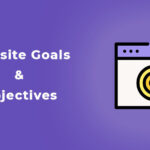Your website gives the first impression to your customers. Web design makes your brand look professional and leads to more conversions. As the initial point of contact between your company and potential clients, you should leave a positive impact. When choosing web design services, you should focus on firms familiar with your industry. These professionals should have a proven track record and experience in using various technologies. This article will focus on how to choose your web designer.
Selecting a Web Design Partner
A web designing professional ensures your website is easy to navigate. He can create visual elements, design the layout, and update your web pages.
Assessing Your Needs
What’s your motive behind web design? What type of content resonates with your audience? Are there specific functions required in your site? What works and what needs improvement? By carefully considering these questions, you can partner with an agency that understands your long-term growth and goal.
Understanding Different Types of Web Design Services
To build an online presence, you should understand the various web design services. You require an expert for copyrighting services, SEO, PPC advertising, developing custom websites, and other related tasks. You also need someone with UI/UX proficiency to design a visually appealing site.
But should you work with an agency or a freelancer? Freelancers have benefits like flexibility and specialized knowledge to handle demanding tasks. However, working with an agency is better. These professionals offer comprehensive services beyond web design, like SEO, marketing, and branding. Some companies have proven track record of delivering projects on time and within the budget. While an agency can have higher overhead costs, they offer ongoing maintenance services.
Researching Potential Web Design Partners
After you clarify your goals, you should search for reputable companies online, gather recommendations, assess the areas of specialization, and review client feedback.
Considering Design Style and Approach
The design style and approach will depend on the visual elements you want to improve (typography, logo, color palette, etc.). You can also choose classic, modern, or minimalistic design – whatever appeals to your brand. Your approach should focus on enhancing user experience.
Technical Proficiency and Capabilities
Your web designing partner should understand different languages like JavaScript and HTML and server-side services like Python. Additionally, you should evaluate the level of technical proficiency in CMS systems, data integration, performance optimization, etc.
Collaboration and Communication
Your web designer partner should have clear communication channels. As you discuss your project scope, narrow down how you’ll get updates on project progress. Other than that, you should collaborate with stakeholders to review the web design process.
Additional Services and Offerings
A web design needs a holistic approach. An agency should offer SEO services to ensure your website ranks on the search pages. Additional offerings include coding, UI/UX design, and marketing integration tools.
Budget Considerations
Your web design budget will depend on the scope of your project. Other factors that affect the cost include the complexity of the project, content creation, and third-party tool integrations. Always weigh quality versus cost.
Client-Centric Approach and Customer Support
A successful web design approach requires a client-centric approach. Your designer should listen to your design needs and the challenges you face in your business. Look for a partner who can offer customer support services to address any issues that crop up.
Making the Final Decision
Having defined your requirements, the next step is narrowing down your options. You should compare the level of expertise and experience, technical capabilities, ability to meet deadlines, and flexibility. These fine details will help you make the final decision.
Next, communicate your expectations and document project requirements to ensure everyone is on the same page. You can now finalize and formalize the agreement and make adjustments as needed.
Conclusion
When choosing your web design partner, you should define your goals and research potential partners. After that, you should consider the design style, level of technical proficiency, communication style, additional offerings, budget, and ongoing support services.
If you want to boost your online presence, you should partner with a web design professional. It’s time you unlock your business potential in the digital landscape.






